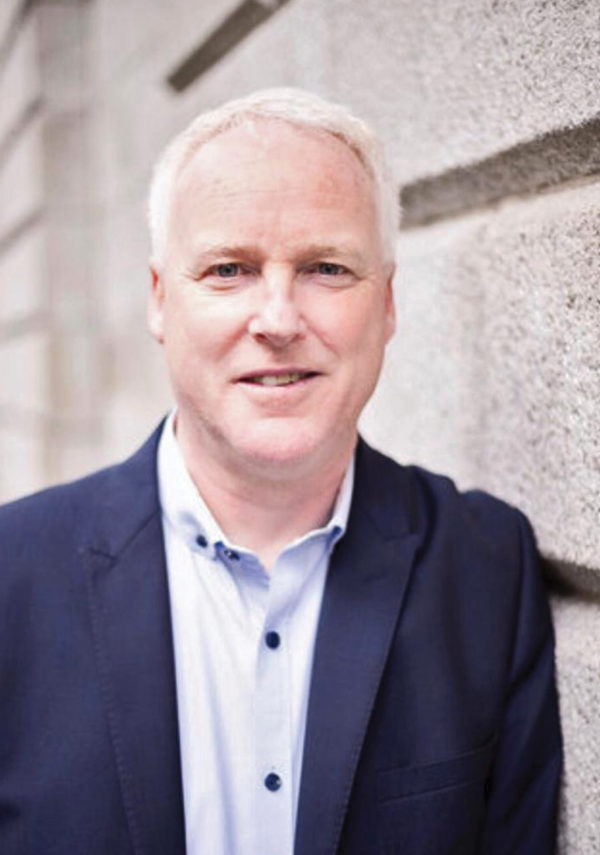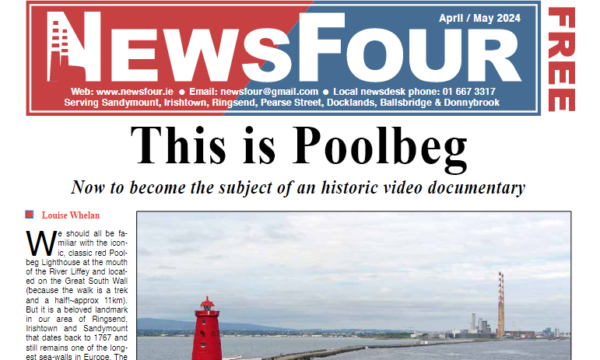
By Eoin Meegan
What kind of a legacy do you want to leave? What do you want to be remembered for when you’re gone? These are the kinds of questions Michael Daly, author and mentor, likes to ask.
Anyone with even a passing knowledge of coaching will know that one powerful question can change everything. The force of its power, of its truthfulness can sometimes take you aback.
So many people sleepwalk through life, never intentionally of course, it’s because we’re so busy doing other things. The question serves as a wake-up call.
Michael Daly has written two successful books already and he has another in the pipeline. His first The Six Traits of Self-Leadership: How to Create a Life of Success and Happiness, (2014) was launched in the University of Vilnius, Lithuania, and his latest, Conversations in Singapore: Searching for True Success on the Silk Road One Question at a Time (reviewed in the last issue) looked at society’s skewed notions of success.
His third, which won’t be in the shops until next year, deals with the theme of ‘showing your true colours’. It will consist of an interview with 12 different people who are living the dream, but it’s not always the dream that society would wish for them.
While not decrying money or the conventional trappings of success, Michael feels that on their own, they can be somewhat hollow and he would like to see people push themselves, dig that little bit deeper, to uncover their true calling, because he feels that is so worthwhile.
He has a passion about people who make a difference in life, and has conducted a series of interviews for Phoenix FM, which he works for occasionally, with people he believes are making a difference in their community, including former Mountjoy Prison Governor John Lonergan.
Having trained for eight years to be a monk, Michael went on to work as a Youth and Community worker with the Finglas Youth Service. While he found the job satisfying he felt he was doing too much administration and not enough of what he felt he was called to do, that is help others.
One day, he made the decision to leave, and without a job or anything, he took off travelling. After spending some time in Greece he began giving workshops throughout Europe, and from there got into mentoring.
“I prefer the term mentoring to coaching,” he says, “I feel coaching is like something you do to get you over the small hills, such as preparing for an interview, but mentoring is like steering a person to the next level on their journey, by asking the right questions until they know what the next step is for them. What their soul is calling on them to do.”
He has a three-pronged approach to mentoring:
Firstly, people need to look at the lives that they are living now, and secondly determine where they would like to be in the future. And from there come up with solutions to bridge the gap. Simple, but effective. “Today people can’t tell you what they’re good at, often because they don’t know themselves,” he muses.
Michael feels we don’t appreciate each other enough. “85% of the good we do, we don’t get to hear about. People don’t circulate the good that is done,” he says, “either their own or others.” We are, of course, quick enough to broadcast things we feel aggrieved about. His motto is if you do the right thing, the right things in life happen to you.
Feeling gratitude is important. “If you are not thankful for the small things you can’t get the big things. It seems almost too obvious that, but most people won’t think of it, or realise it. We need to choose to focus on what’s going right in life.”
The metaphor of the journey seems to appeal to him, perhaps because he’s made so many. “The way I see life is someone is walking ahead of you that you admire. They have walked a path similar to the one you’re on, and they are like a light for you. Meanwhile, someone is behind you and you are guiding them. This is crucial, because as well as receiving we always have to give back. If we’re doing spiritual work and we’re not giving something back, then we’re only doing it for the ego. Lastly, there is a person walking alongside you. This is someone you can check in with; they tell you if you’re going off kilter a bit, like remind you if you failed to speak your truth sometime, but always in a non-judgmental way.” I like the model.
Returning to the question of legacy, Michael reminisces about coming back from a friend’s funeral once. “Everyone talked about the deceased for about 15 minutes and then it was like he was forgotten, like he hadn’t existed. This saddened me because he was a really good man, and got me thinking about the whole legacy thing, about what we leave behind us. Do we just pass through or do we leave an impression behind?”
In turn, it got me thinking about the quotation (often mis-attributed to Henry David Thoreau) by Oliver Wendell Holmes Sr.
“Many people die with their music still in them. Why is this so? Too often it is because they are always getting ready to live. Before they know it, time runs out.”
I think Michael Daly is already leaving an enduring legacy. Being in the man’s presence you know you’re with someone who lives his truth. I eagerly look forward to his next book.



